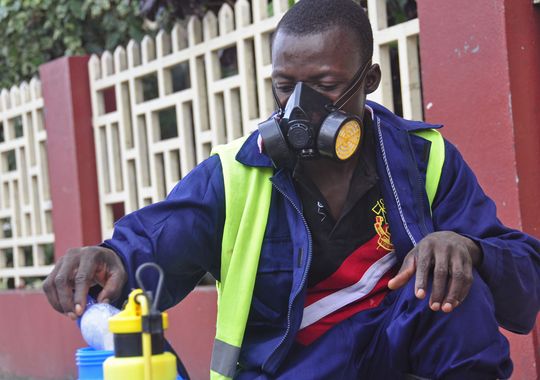This article originally appeared on Vox:
We know that Ebola outbreaks can be stopped — public-health officials have stopped them in the past. So how can they stem the current disaster unfolding in West Africa?
By and large, experts understand what broad steps they need to take to contain the disease. The biggest problem to date is that, in West Africa, authorities lack the financial resources and human power to mount an effective response. On top of that, cultural factors have complicated the situation and led to mistrust of health-care workers.
So far, the World Health Organization (WHO) has estimated more than 1,600 cases of Ebola and 800 deaths, centered in Guinea, Liberia, and Sierra Leone. These countries are some of the poorest on Earth and cannot control the outbreak by themselves.
Outside organizations, such as Doctors Without Borders and the International Federation of Red Cross and Red Crescent Societies have been doing the best that they can. And on July 31, the WHO announced a $100 million push to get hundreds more people on the ground in these countries.
But even that might not be enough, argued Michael Osterholm, director of the Center for Infectious Disease Research and Policy at the University of Minnesota. In a recent piece for the Washington Post, he suggested that countries like the United States, France, and Canada need to start sending many more people:
The G-7 nations — the United States, Canada, Germany, Britain, France, Italy and Japan — must immediately mobilize and deploy hundreds of infectious-disease experts, along with medical and technical assets to map the epidemic. Hundreds more personnel will be needed to establish treatment centers and to work with local leaders and educators to help people learn how to stop virus transmission.
No matter where help comes from or how fast it arrives, the road ahead will be challenging. “It’s not going to be quick or easy. Even in a best case scenario, it could take three to six months or more,” said Centers for Disease Control and Prevention director Tom Frieden in a press conference.

COMMENTS
Please let us know if you're having issues with commenting.